Table of Contents
ToggleThe Rise of the Network Hacker: How Cybercriminals are Exploiting Vulnerabilities
Network hackers use their technical knowledge to obtain unauthorised access to computer networks, usually with malicious intent. Their objectives are varied and complex, ranging from financial gain to ideological goals. Many hackers are motivated by the promise of financial gain, seeking to steal valuable data such as credit card information, personal identities, or intellectual property, which may be sold for profit on illegal internet marketplaces. Understanding these motivations is not just important, and it's crucial for effective cybersecurity.
Some hackers are driven by a need for power and control, seeking fulfilment in penetrating networks and displaying their capacity to alter systems. Others are motivated by ideological or political beliefs, focusing on specific organisations or individuals whose conduct they dislike to make a statement or advance their cause. The challenge and intellectual excitement of bypassing security measures can also be powerful motivators for hackers.
Understanding the various reasons behind hacking is critical for creating effective cybersecurity tactics. These tactics, when implemented correctly, can empower organisations and individuals to combat hacking and protect their networks.
Understanding the motivations behind hacking operations allows organisations and individuals to anticipate possible threats better and create stronger cyber defence methods.
Some Pointers
- Cybercriminals are driven by financial gain, political motives, and personal satisfaction to exploit network vulnerabilities.
- Cybercriminals target and exploit weaknesses in networks through methods such as phishing, social engineering, and software vulnerabilities.
- Cyber attacks have evolved from basic malware to sophisticated network breaches, including ransomware and advanced persistent threats.
- Network hacking compromises computers and data, leading to financial loss, reputational damage, and potential legal consequences.
- Implementing strong passwords, keeping software updated, and educating users about cybersecurity best practices are steps to prevent and mitigate cyber-attacks.
 Identifying Vulnerabilities: How Cybercriminals Target and Exploit Weaknesses in Networks
Identifying Vulnerabilities: How Cybercriminals Target and Exploit Weaknesses in Networks
Malware: A Common Threat
One frequent strategy is to use malware, which includes viruses, worms, trojans, and ransomware. Malware is frequently delivered via phishing emails, malicious websites, or infected files. Once within a network, it may inflict significant damage by stealing data, interrupting operations, or taking computers hostage.
Social Engineering: Manipulating Human Psychology
Another tactic cybercriminals employ is social engineering, which involves tricking people into disclosing critical information or performing acts that jeopardise network security. Strategies such as pretexting, baiting, or tailgating, which use human psychology to circumvent technical defences, can be used to accomplish this.
Exploiting Software Vulnerabilities and Brute Force Attacks
Network hackers may use software flaws to obtain unauthorised access to systems. They frequently target obsolete or unpatched software with known security holes that can be used to install malware, steal data, or take control of the machine. Additionally, brute force assaults are another approach employed by cybercriminals to exploit network vulnerabilities. This entails systematically testing various login and password combinations until the correct credentials are discovered, allowing the hacker to access the network. Understanding the various strategies used by cybercriminals to identify and exploit network vulnerabilities allows organisations and people to take proactive steps to strengthen their defences and reduce potential dangers.
The Evolution of Cyber Attacks: From Basic Malware to Sophisticated Network Breaches
The landscape of cyber attacks has changed dramatically, from primary malware infections to sophisticated network breaches capable of causing broad damage. Previously, hackers relied primarily on basic viruses and worms to attack networks and sow chaos. These early forms of malware were relatively simple to identify and delete, but they paved the way for more sophisticated cyber dangers to arise in the future.
Our alertness is required since cybercriminals' capabilities have increased with technology. Attacks like advanced persistent threats (APTs) are becoming increasingly common; they are nimble and specific, and they can evade detection for a long time. Also, thieves have started using ransomware, which encrypts data and demands money to decrypt it, to a large extent, in recent years. We can effectively battle these risks by remaining vigilant and prepared.
Zero-day exploits, which target previously undiscovered vulnerabilities in software before a patch or cure is released, have become more common as cyber attacks have evolved. These exploits can be extremely useful for hackers because they allow attackers to exploit flaws before software developers detect and fix them. Furthermore, the rise of nation-state-sponsored assaults has added to the complexity of the cybersecurity landscape, with governments leveraging their resources to execute global cyber espionage and sabotage operations.
As cyber-attacks evolve and become more sophisticated, it's crucial for organisations and individuals to stay updated about new risks and adjust their security measures accordingly. By taking a proactive stance, we can safeguard our systems and data from prospective dangers, which puts us in charge.
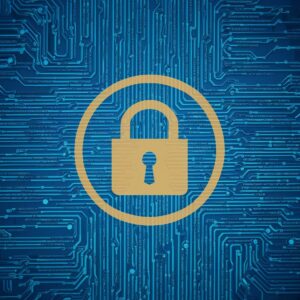 The Impact of Network Hacking: How Cybercriminals Compromise Your Computer and Data
The Impact of Network Hacking: How Cybercriminals Compromise Your Computer and Data
Network hacking can have a severe impact on both individuals and organisations. After hackers infiltrate a computer system or network, they can access information such as bank records, trade secrets, intellectual property, and personal details. As a result, people and businesses may become victims of identity theft, financial fraud, or damage to their reputations.
Furthermore, network hacking can disrupt operations and cause substantial downtime for businesses, resulting in decreased productivity and revenue. In some situations, cyber attacks can result in the theft or destruction of crucial data, which can have long-term implications for those affected. Furthermore, compromising a computer or network might result in installing further software or backdoors, allowing hackers to keep permanent access and carry out their nefarious operations unnoticed.
This can worsen the impact of a cyber assault and make it more difficult for victims to recover from it. Furthermore, network hacking can destroy trust and confidence in digital systems and technology, resulting in a loss of faith in online services and a reluctance to adopt new digital advancements. The impact of network hacking is far-reaching, with significant consequences for individuals, corporations, and society as a whole.
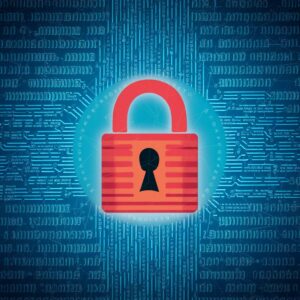 Protecting Your Network: Steps to Prevent and Mitigate Cyber Attacks
Protecting Your Network: Steps to Prevent and Mitigate Cyber Attacks
Protecting your network from cyber assaults necessitates a multifaceted strategy that includes technical safeguards and user awareness. Ensuring that software is regularly updated with the most recent security patches and keeping your software up to date is an important way to stop computer breaches. This helps resolve known vulnerabilities and reduces the danger of crooks exploiting them.
Furthermore, strong access controls and authentication techniques can prevent unauthorised access to networks and systems. This involves implementing complicated passwords, multi-factor authentication, and role-based access controls to restrict powers depending on job responsibilities. Businesses should buy trustworthy security tools like firewalls, antivirus software, and breach detection systems to stop bad people from accessing their networks.
Regularly conducting security audits and penetration tests is crucial to ensuring the effectiveness of your cybersecurity plan. By detecting and resolving vulnerabilities in network defences before hackers exploit them, you can significantly reduce the risk of cyberattacks. Furthermore, user education and awareness are essential in this proactive strategy, helping foster an organisation's security culture.
The Role of Cybersecurity: How Organizations and Individuals Can Defend Against Network Hackers
Strengthening Cybersecurity Posture
Setting clear policies and processes for managing access controls, data protection, incident response, and security awareness training can help organisations improve cybersecurity. In a structured way, this helps build a strategy for dealing with possible threats and weaknesses.
Safeguarding Sensitive Data
Encryption technologies can help keep private data safe from people who shouldn't have access to it while it's being sent or stored. Businesses should also conduct regular risk reviews to identify possible security holes and determine which areas need the most work. This helps them make good use of their resources and focus on fixing the most important security holes in their networks.
Individual Responsibility in Cybersecurity
Good cybersecurity habits are another way people can help protect networks from hackers. This means using strong passwords, being careful about what personal information you share online, ensuring your software is always up to date, and being on the lookout for possible security risks. By taking steps to safeguard themselves and their gadgets from cyberattacks, individuals can help make the internet a better place for everyone.
The Future of Network Hacking: Emerging Threats and the Importance of Staying Vigilant
As technology improves, so will the skills of people who hack into networks. In the future of network hacking, new threats like attacks powered by AI, cryptography breaches driven by quantum computing, and Internet of Things (IoT) vulnerabilities are likely to appear. These new dangers will be very hard for cybersecurity experts to handle, and they need creative solutions to lessen their effects.
Furthermore, the increasing interconnectivity of IoT devices is expanding hackers' attack surface, providing them with a larger playground for exploitation. This also means that critical infrastructure, including power grids, transportation systems, and hospitals, is at a higher risk of cyber attacks as it becomes more digital. This underscores the importance of maintaining vigilance and continually adapting cybersecurity measures to counter new threats.
Governments, industry partners, and cybersecurity experts must collaborate to devise effective ways to protect against future network hacking threats. By keeping up with new cybersecurity trends and investing in strategic defence measures, people and companies can prepare for the challenges that lie ahead in the constantly changing world of network hacking.
References:
WHY IS CYBERSECURITY IMPORTANT FOR BUSINESS? – A&B Business. https://www.abbusiness.com/2023/06/22/why-is-cybersecurity-important-for-business/
What Is A Zero-Day Exploit And Why Are They Dangerous? – Cyber Matters Reviews. https://cybermatters.review/hacking/what-is-a-zero-day-exploit-and-why-are-they-dangerous/





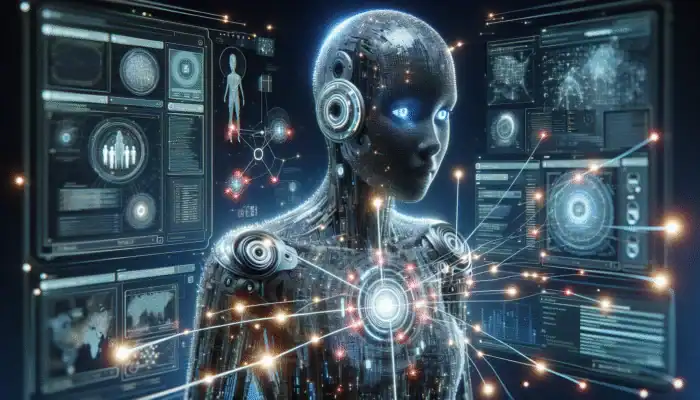
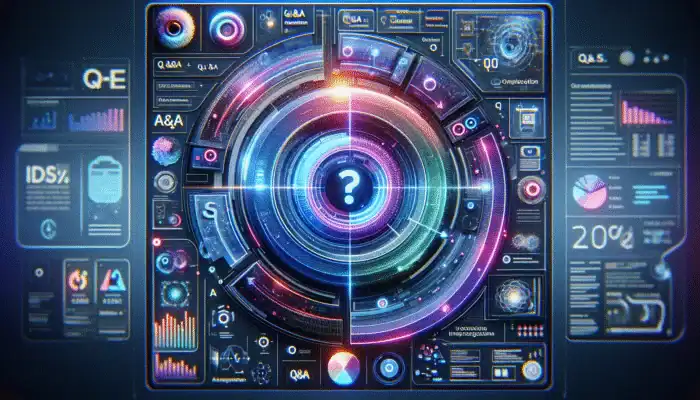

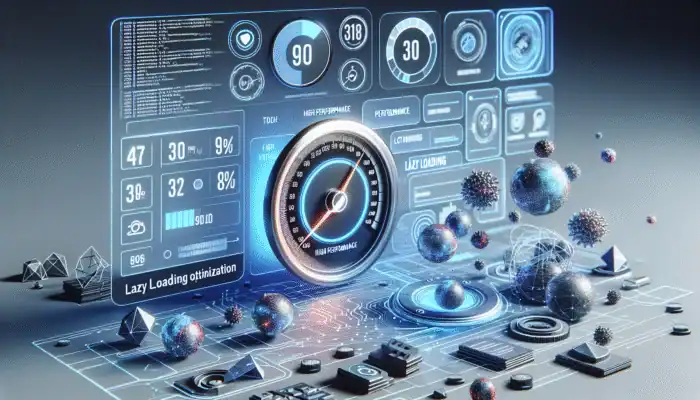


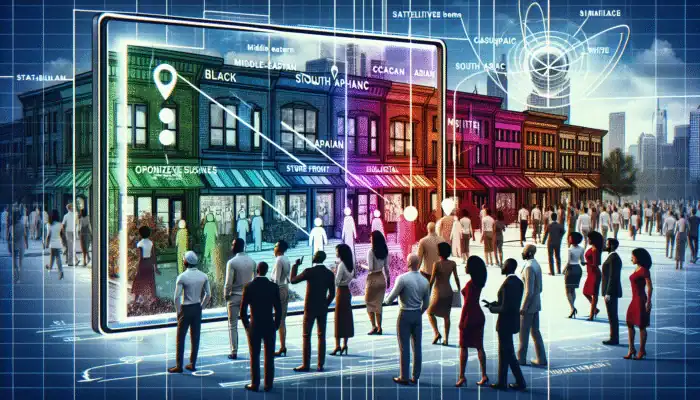


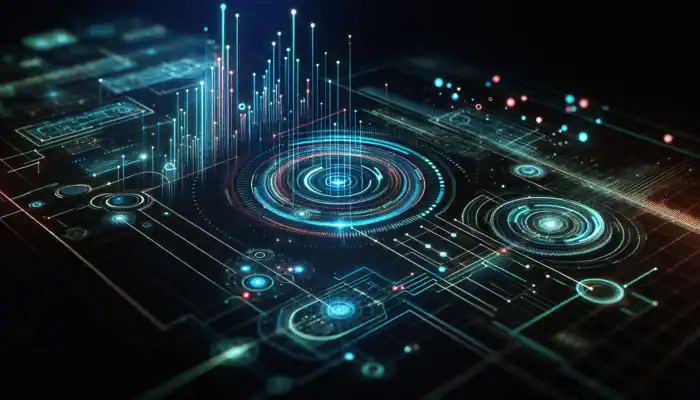



41 Comments
The motivations behind network hacking indeed reveal a complex tapestry of human behavior and societal issues. I’ve often found it intriguing how hackers, regardless of their intentions, can reflect deeper trends in our digital culture. For instance, the rise of financial crime in this realm often correlates with growing economic inequality; it’s as if the promise of wealth can skew moral perspectives, driving some to exploit vulnerabilities rather than create value through legitimate means.
You bring up a really interesting point about how hacking can mirror broader societal trends. It’s fascinating to think about the motivations behind these actions. When people feel a sense of exclusion or hopelessness due to economic factors, it’s not surprising that some might turn to hacking as a way to reclaim a sense of power or success.
“Exploring this fascinating intersection further, you might find our latest piece on the ethical implications of hacking and its societal impacts particularly thought-provoking.”
https://ezi.gold/trustindex
The insights shared about the motivations behind network hacking really struck a chord with me. It’s fascinating to realize just how complex the landscape of cybercrime is, and how it intertwines with human psychology and societal structures. Personally, I often find myself reflecting on how the digital realm mirrors many facets of our real-world interactions—power dynamics, ethical distinctions, and even sense of justice are all at play.
Your exploration of the motivations driving network hackers raises fascinating questions about the intersection of ethics and technology. It’s intriguing to consider how the rise of cybercriminality is not just about theft or disruption, but also about expression and ideology. In examining the profiles of hackers, we see a spectrum that can range from financially motivated criminals to ideologically driven hacktivists.
You’ve touched on something really important with the idea that cybercriminality encompasses so much more than just financial gain. The spectrum of motivations behind hacking is indeed complex. It reminds me of how art can be a medium for expression, and for some, hacking is a form of digital rebellion or commentary on societal issues.
You’re hitting the nail on the head! The hacker landscape is like a wild buffet of motivations—everyone’s got their own flavor. One hacker could be eyeing that sweet bank account, while another’s looking to make a statement, like a digital graffiti artist splashing their ideology across cyberspace. It’s like a party where some people are there for the free food, and others just want to argue about the best sci-fi novel.
It’s interesting how you connect the digital realm with real-world interactions, especially regarding power dynamics and ethical distinctions. It brings to mind the way social media can amplify these aspects—echo chambers, harassment, or even the viral spread of misinformation can often reflect deeper human impulses and societal tensions.
It’s fascinating to see the complexities of hackers’ motivations as explored in your post. I’ve often thought about how different their objectives can be, and it raises important questions about how we approach cybersecurity beyond just technical defenses. The rise of the network hacker feels like a reflection of broader societal tensions—whether it’s financial inequality or political discontent, these underlying issues often fuel malicious activities in cyberspace.
You’ve brought up an interesting perspective on the motivations behind hacking. It’s true that for some, hacking transcends financial motives. Digital rebellion and commentary on societal issues can transform what might be considered crimes into acts of protest or creative expression.
You bring up some really insightful points. The duality of motivations in the hacking world is fascinating, isn’t it? On one hand, you have those who are purely financially motivated, sometimes just chasing profits through whatever means necessary, and then there are the hacktivists, who see themselves as digital Robin Hoods or, in some cases, even vigilantes. This spectrum really complicates our understanding of what it means to be a hacker.
Thank you for your insightful comment! If you’re interested in delving deeper into the complex motivations behind hacking and the broader implications for ethics in technology, check out our latest article here.
https://ezi.gold/quillbot
You’ve tapped into a crucial aspect of cybercrime that often gets overshadowed by the technicalities. The way our online interactions reflect real-world dynamics is something we tend to overlook. Power plays, ethical dilemmas, and concepts of justice are just as present in digital spaces as they are in our physical environments. It’s intriguing to consider how motivations for hacking can stem from personal grievances or societal issues, offering a glimpse into the hacker’s worldview.
You bring up a fascinating point about hacking as a form of expression. There’s definitely a parallel to be drawn between digital actions and art. Just like artists use their work to challenge norms or ignite conversations, some hackers employ their skills to critique societal issues, expose injustices, or simply to provoke thought.
“Absolutely, the parallels between hacking and artistic expression are fascinating! If you’re interested in exploring this idea further, check out this insightful resource that dives deeper into the motivations behind cybercrime.”
https://ezi.gold/krystal
This discussion on the motivations behind network hacking raises important questions about the broader societal implications of cybersecurity threats. While financial gain is often highlighted as a primary motivator, the ideological and psychological factors cannot be overlooked. For instance, the rise of hacktivism in recent years shows how hackers are increasingly using their skills to push political agendas, often in response to perceived injustices.
This post really delves into the complex motivations behind hacking, and I find it fascinating how diverse these can be. It’s intriguing to see how a mix of technology skills and psychological factors drive individuals to breach networks. For instance, hacktivism highlights the ideological angle—think of groups like Anonymous, who target organizations to advocate for social justice. This layer adds depth to our understanding of cybercriminals; they’re not just cold-hearted criminals but, in some cases, are acting out of a desire to challenge perceived injustices.
I found your take on the motivations behind network hackers really thought-provoking! It’s fascinating to see how complex their reasons can be, going beyond just the stereotypical portrayal of “money-hungry cybercriminals.” The combination of power, ideology, and financial gain creates a really layered landscape of motivations, doesn’t it?
The complexities surrounding the motivations of network hackers indeed reflect a broader narrative of our technologically driven society. It’s intriguing to ponder how these individuals navigate their own ethical landscapes while confronting the moral implications of their actions.
You’ve touched on something really important—how deeply our interactions in the digital world reflect what we see in our everyday lives. It’s wild to think that the same motivations driving someone to hack a network can also stem from familiar issues like power struggles or feelings of injustice.
You raise some compelling points about the interplay between the digital realm and real-world interactions. It’s fascinating how our online experiences can mirror the complexity of human behavior and societal structures, isn’t it? When you think about echo chambers, for instance, it’s like a double-edged sword. Social media allows us to connect with like-minded people and share ideas, but it can also create a bubble that limits exposure to differing viewpoints. This can lead to such a narrow understanding of the world, which is troubling, given how essential diverse perspectives are for real-world discussions.
“Absolutely, these dynamics within the digital landscape are crucial to understanding our societal interactions. If you’re interested in exploring this further, check out my latest piece on the intricate relationships between online behavior and real-world implications.”
https://ezi.gold/krystal
This post provides a thought-provoking perspective on the motivations behind cybercrime. It’s fascinating how the landscape of hacking is as diverse as the individuals engaging in it. I’ve often thought about the ethical implications of hacking, especially when considering “hacktivism,” where individuals feel justified in their actions due to political beliefs. This duality raises questions about morality in the digital age.
You make an interesting point about the ethical landscapes hackers navigate. It’s almost like they exist in this liminal space between right and wrong, often driven by a desire to challenge systems or expose vulnerabilities. I think about figures in cybersecurity, like ethical hackers or “white hat” hackers, who operate within legal boundaries but still play a crucial role in revealing the weaknesses in our tech infrastructure.
You’ve really hit on something intriguing. It’s easy to get caught up in the media’s portrayal of hackers as purely profit-driven bad guys. But when you dig a little deeper, the motivations behind their actions can be surprisingly diverse. You mention power and ideology, which are really key elements. For some, hacking isn’t just about the financial return; it’s a way to exert influence or challenge authority. There are groups that see themselves as modern-day Robin Hoods, hacking big corporations or governments to expose corruption or show flaws in systems.
I’m glad you found the article thought-provoking! If you’re interested in diving deeper into this complex world of motivations behind network hackers, check out more insights here.
https://ezi.gold/emailoctopus
You’ve touched on something really intriguing—the idea that hacking can unfold in ways similar to art, allowing for a platform to challenge societal norms. It’s worth exploring how some hackers see their work as a form of activism, using their skills to draw attention to issues like privacy, government transparency, or corporate malfeasance. There’s a certain creativity involved in how they construct their digital narratives, much like an artist shaping a message through their medium.
“Thanks for your thoughts! If you’re intrigued by this connection, I highly recommend checking out this resource for a deeper look into the motivations behind cybercrime.”
https://ezi.gold/consult
You raise a really compelling point. Hacktivism does bring a whole different lens to the conversation about motivations for network hacking. It’s fascinating to see how some individuals leverage their tech skills not just for profit but to make a statement or fight against what they see as social or political wrongs.
You bring up a really important point about the connection between hackers’ motivations and broader societal issues. It’s intriguing to think about how the digital landscape can mirror the challenges we see in everyday life. When financial inequality or political discontent comes into play, it seems to drive some individuals to find ways to voice their frustrations or make a statement through cyberspace.
Your observations about the motivations behind network hacking really hit the nail on the head. It’s easy to get wrapped up in the sensational stories of data breaches and cyberattacks, but when we take a step back, we realize that the motivations can be deeply rooted in personal beliefs and cultural contexts.
Thank you for your insightful thoughts! If you’re interested in diving deeper into the evolving landscape of hacking motivations, check out our latest article that delves even further into these complexities.
https://ezi.gold/trustindex
You’ve touched on a really compelling point about the diverse motivations behind hacking. The concept of hacktivism is such an interesting area to explore, especially when considering how technology intersects with activism.
“I’m glad you found the motivations behind hacking intriguing! If you’re interested in exploring more about the psychological aspects and diverse narratives surrounding cybersecurity, check out this insightful resource.”
https://ezi.gold/trustindex
You brought up some really compelling points about the motivations behind network hackers, and it opens the door to a deeper conversation about how we define ethics in the digital age. This landscape can be quite complex, where the lines between criminality and activism blur, and the underlying motivations can vary dramatically.
You’ve brought up a crucial point about the relationship between economic inequality and cybercrime. It’s striking to see how those disparities can push some individuals towards hacking as a means of survival or financial gain. The allure of quick wealth can indeed cloud ethical considerations.
You’ve touched on such critical aspects of the motivations behind network hacking. It’s fascinating how hackers vary in their intent, from financial gain to power dynamics or even political statements. This complexity makes it essential for cybersecurity measures to evolve constantly.
You’ve really nailed the complexity of hacker motivations. It’s interesting how those motivations can often reflect broader societal issues. For instance, financial gain can often be a byproduct of economic disparities, and when we look at hacktivism, it usually draws attention to political injustices.
You’ve highlighted an important aspect of the discussion around economic inequality and cybercrime. It’s fascinating, isn’t it? When you think about it, the pressure some people face in tough economic situations can create a perfect storm for risky decisions. The idea of hacking as a means to get ahead—especially when traditional paths feel blocked or unattainable—makes a lot of sense in that context.
You’ve raised some really interesting points about the ethical complexities of hacking and hacktivism. It’s true that the motivations behind cybercrime can be deeply intertwined with personal beliefs and societal issues. I often find myself pondering the same duality you mentioned, especially when I think about the impact of technology on activism.
Your exploration of the motivations behind network hackers truly highlights the complexity of cybercrime. I find it fascinating how the same skills that enable a hacker to exploit vulnerabilities can also be harnessed for ethical purposes, like penetration testing to improve security. This duality raises important questions about our societal approach to technology and responsibility.
You bring up some thought-provoking points about the motivations behind hacking and the broader societal context surrounding it. It’s true that the actions of hackers often mirror the frustrations and tensions present in our world. When looking beyond the technical aspects of cybersecurity, it becomes evident that understanding these motivations is key to developing a more comprehensive approach to online safety.
“Absolutely, the interplay between societal issues and hacker motivations is crucial to understanding our cybersecurity landscape. If you’re interested in diving deeper into this topic, check out this insightful article that explores the roots of cyber motivations further.”
https://ezi.gold/trustindex
You bring up a compelling point about the duality of motivations in cybercrime, especially with hacktivism. It’s interesting to think about how individuals can justify their actions based on personal or political beliefs, creating a gray area in the ethical landscape of hacking.
I came across some valuable insights on protecting against computer viruses that seem to align nicely with the ethical discussions surrounding hacking and its motivations—definitely worth a look for anyone intrigued by the complexities of the digital landscape.
‘Protection Against Computer Viruses’
https://ezi.gold/protection-against-computer-viruses/.
You bring up some really compelling points about the motivations behind network hacking. It’s fascinating to see how, in addition to the typical drive for financial gain, we’re now observing a shift with hacktivism becoming more prominent. This evolution reflects broader societal trends, particularly as more individuals feel disillusioned with traditional forms of protest or advocacy.
You raised some really compelling points about the ethical landscape hackers navigate. It’s fascinating to think about how hackers can exist in that gray area, where their motivations can range from altruism to outright malice. Ethical hackers, or “white hats,” embody this complexity. They have a unique role—one that requires a deep understanding of both the technology involved and the implications of their actions.
You’ve hit on a critical aspect of the conversation surrounding network hacking: the way it serves as a mirror reflecting societal conditions. When we dig deeper into the motivations of hackers, we see a spectrum that ranges from those who feel marginalized or disenfranchised to individuals working within organized networks with a clear financial agenda. It’s fascinating to think about how these motivations are often driven by the underlying issues of our economic landscape.
You’ve nailed a fascinating angle there. Hacking really does act as a lens through which we can examine different societal issues, much like art. Some hackers see themselves as modern-day digital rebels, challenging authority or exposing injustices, and it raises serious questions about ethics in the virtual world.
“I completely agree! Hacking can indeed be a powerful form of expression. If you’re interested in exploring more about the different motivations behind cybercriminality, check out this insightful resource.”
https://ezi.gold/consult
You’ve really touched on a key aspect of this conversation. The line between what’s considered hacking for a good cause and what’s just plain wrong often feels blurry, doesn’t it? When we look at hacktivism, it can feel like a modern form of protest, where technology becomes a tool for amplifying voices that might otherwise go unheard. On the other hand, the potential consequences of these actions can impact innocent people or even risk broader cybersecurity issues.
“Thank you for your thoughtful insights! If you’re intrigued by the intersection of technology and activism, you might enjoy exploring this further in my latest piece.”
https://ezi.gold/PhotoLeap
Ah, the world of network hackers: a strange mix of digital Robin Hoods and misguided pranksters. It’s fascinating to think about their motivations—whether they’re after a quick payday or just trying to outsmart the system for the thrill of it. Reminds me of that one time I tried to break into my own Wi-Fi network after forgetting the password… except instead of being a harmless attempt at digital acrobatics, some folks are out here plotting serious chaos!